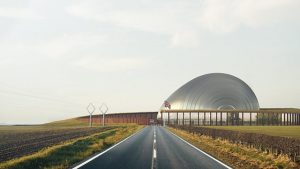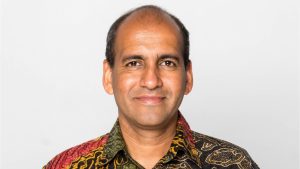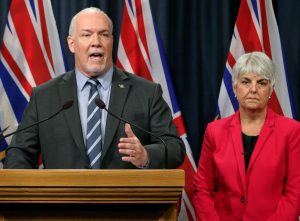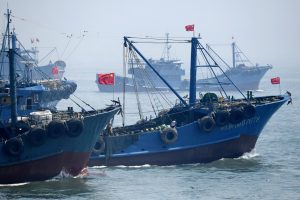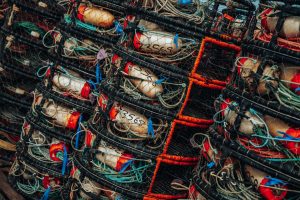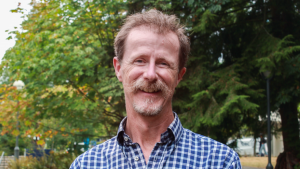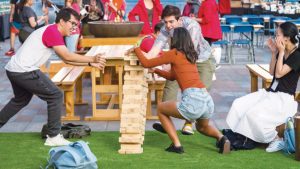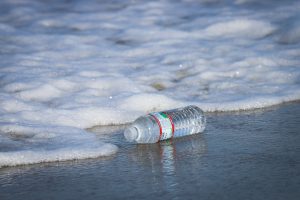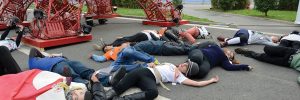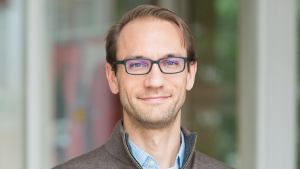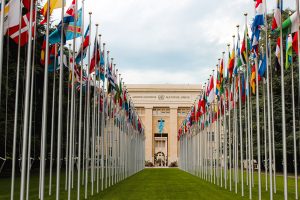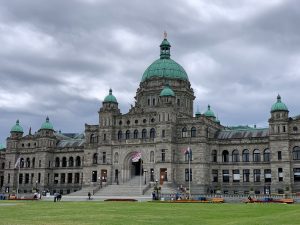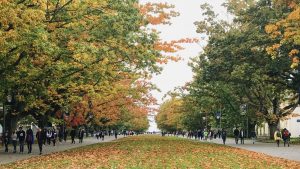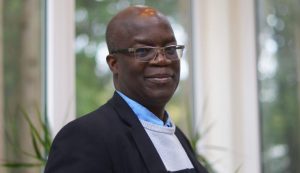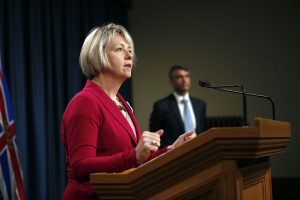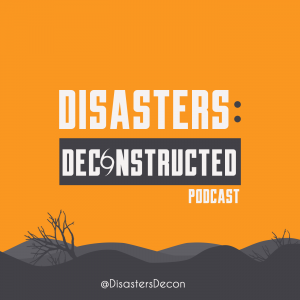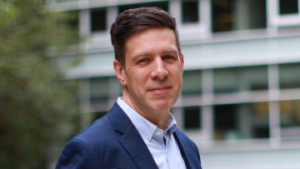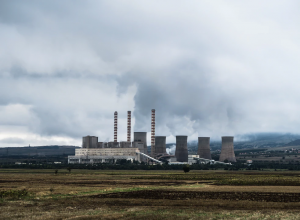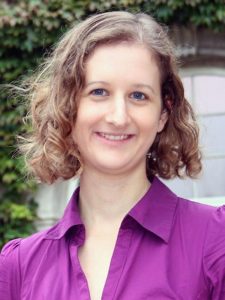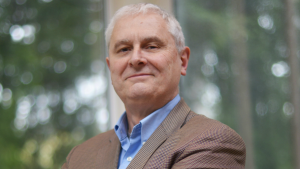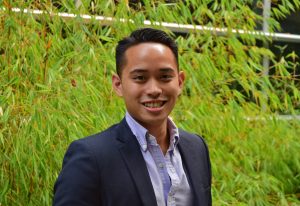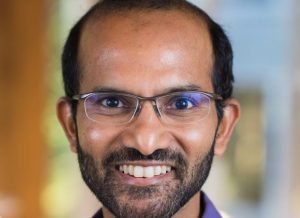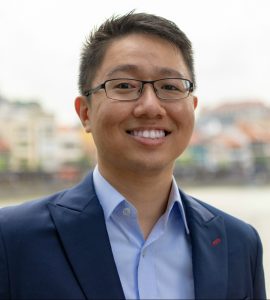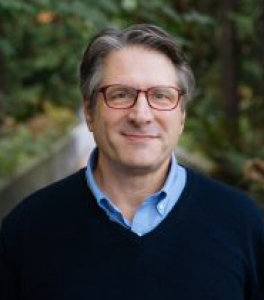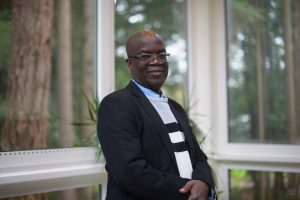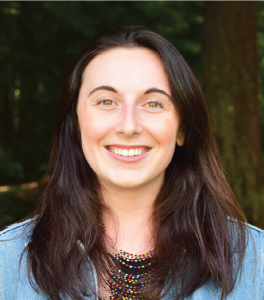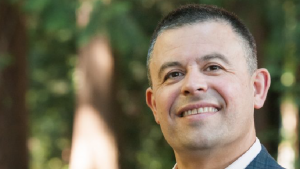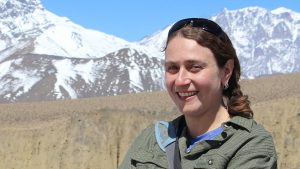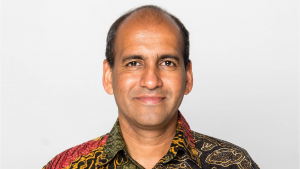Media Mentions: Heidi Tworek Co-Authors Trolled on the Campaign Trail Report
“Social media are crucial for contemporary election campaigns, and the Covid-19 pandemic has only accelerated that trend. While online interactions during campaigns can be positive and productive, candidates also face insults, threats, hate speech, and other forms of incivility,” declares a new report from Heidi Tworek and Chris Tenove.
The Nuclear Industry Dreams Small
SPPGA Professor Ramana is skeptical of the case for small modular reactors, stating that it would be reversing the economies of scale. Listen here at BBC Sounds at the 12:35 mark.
Pandemic Communication: In Need of a Reset?
Professor Heidi Tworek (SPPGA & UBC Department of History) argues that the Ontario government’s COVID-19 communication strategy needs to be more coherent, drawing examples from countries that have done a better job at communicating pandemic guidelines.
Media Mentions: SPPGA Speaks on B.C. Election Results
We bring you the latest news from our faculty after the provincial election results on Saturday, October 24, 2020.
Fishing for a Sustainable Ocean
Professor Rashid Sumaila (SPPGA & UBC Institute for the Oceans and Fisheries) believes in the importance of interdisciplinary collaboration in sustainable fishing research and urges a focus on the fishing industry’s private sector. Read more at Stockholm Resilience Centre.
China Has a Golden Opportunity to Show Global Leadership
In an opinion piece in the South China Morning Post, SPPGA Professor Kristen Hopewell talks of the opportunity for China to emerge as a new leader and key player in an ambitious WTO fisheries deal, representing their commitment to the liberal trading order. Read more.
New START Extension Positive but Strategic Stability Depends on US Election Outcome
The potential extension of the New START arms reduction deal between the United States and Russia is a positive development but the deal still very much depends on the outcome of the US presidential election, asserts Professor Ramana for Urdu Point.
Can Nuclear Replace Coal in the West? Over 20 Utah Cities Are Betting on It Despite the Risks
Weighing in on a small modular nuclear reactor in Utah, SPPGA Professor Ramana says that an investment would put cities in a fixed payment system despite fluctuating prices of the power market for the next 40 years, shaping up to be a potentially bad investment. Read more at KUER 90.1.
Media Mentions: David Boyd Presents on Right to Healthy Environment to UN
On October 27, David Boyd presented a report to the United Nations General Assembly. He looks at the link between human rights and a healthy environment, and how the right to a healthy environment can hold governments and businesses accountable.
Covid-19 Could Kill a Key Climate Strategy
“The pandemic is blowing a fiscal hole in government budgets around the world.” Professor George Hoberg and Kingsley Eze (MPPGA 2019 Cohort) speak on how Article 9 of the Paris Agreement is at risk due to the inaction of wealthy countries. More at Asparagus Magazine.
Should Big Tech Be Setting the Terms of Political Speech?
In the run up to the US presidential election on November 3, digital platforms are releasing or updating policies related to disinformation, election advertising and content moderation. Professor Heidi Tworek (SPPGA & UBC Department of History) argues these changes come far too late. More at the Centre for International Governance Innovation.
The Singapore PAP’s Waning Dominance
Professor Kai Ostwald (SPPGA & UBC Political Science) examines the dwindling dominance of PAP, increased representation of female and ethnic minority members, and the long-term implications of the PAP’s vision. Read more at East Asia Forum.
COVID and Climate Change Should Be the UN’s Priority, New Global Poll Says
Professor Heidi Tworek (SPPGA & UBC Department of History) examines the lack of international collaboration and consensus on what it means to confront COVID-19 and says that the UN should instigate an international forum on pandemic response. Read more at Vice Canada.
Ontario’s Second Wave Is Here
After Ontario reported their new highest one-day total of 700 new COVID-19 cases, Professor Heidi Tworek (SPPGA & UBC Department of History) discusses Ontario’s communications strategy regarding the second wave of the outbreak. Listen now on TVO’s podcast, #onpoli.
300 Chinese Fishing Ships Off South America Coast Raise Food Security Worries
With the waters near China mostly depleted of fish, Chinese fishing ships are incentivized to conduct “illegal, unreported, and unregulated (IUU)” fishing activities in foreign waters, according to Professor Rashid Sumaila (SPPGA & UBC Institute for the Oceans and Fisheries). Read more at Voice of America.
Death Threats Among Abuse Reported by B.C. Provincial Health Officer Bonnie Henry, Other Officials
Amidst the rise in death threats against Dr. Bonnie Henry and several other high-profile health officers and politicians, Professor Heidi Tworek (SPPGA & UBC Department of History) weighs in on the dangerous consequences of the abuse. Read more at The Globe and Mail.
No Business Case for New Nuclear Reactors in New Brunswick
SPPGA Professor Ramana, the Simons Chair in Disarmament, Global and Human Security, disputes what small modular nuclear reactor advocates claim to be a prospective business opportunity in New Brunswick. Read more at NB Media Co-op.
Professor Heidi Tworek Speaks in “Platforms for Harm?”
With the advent of user-generated content in the early 2000s, governments have struggled with holding online platforms accountable for their role for perpetuating social harm while upholding free expression. The Centre for International Governance Innovation (CIGI) invited Professor Heidi Tworek (SPPGA & UBC Department of History) to the discussion.
Scientists Warn That Indian, Pakistani Nuclear Plants Could Get Wrecked by Tsunamis
Fearful of a fate similar to the Fukushima nuclear disasters, SPPGA Professor Ramana discusses the dangers of siting nuclear reactors along India and Pakistan’s coastline, areas prone to natural disasters. Read more at Futurism.
Disasters Deconstructed Podcast: Professor Sara Shneiderman
Professor Sara Shneiderman (SPPGA & UBC Department of Anthropology) reflects on the Disaster Studies Manifesto, a platform created for people to rethink research agendas, methods, and the allocation of resources to reflect local realities, priorities, and critiques. Listen to this two-part series, hosted by the Disasters Deconstructed Podcast, featuring contributions from Professor Shneiderman breaking down the effectiveness of disaster research and responding to questions.
Detained Australian Journalist’s Case Shines Fresh Spotlight on China’s ‘Hostage Diplomacy’
The detention of Chinese-born Australian journalist Cheng Lei has highlighted the risk to foreign nationals from so-called “hostage diplomacy”. SPPGA Professor Paul Evans asserts that detention is a cruel and counterproductive tactic in the South China Morning Post.
Ready or Not, Here Are the Signs of a Fall Election in B.C.
UBC Centre for the Study of Democratic Institutions (CSDI) Acting Director and UBC Political Science Professor Gerald Baier commented on Elections BC and party campaign workers preparing for a potential election in the midst of the pandemic. Read more from CBC News and Yahoo.
Fraser Sockeye Fishery Could Be Shut down for Years
Following low prices and demand for wild salmon during the pandemic, commercial fishermen are faced with another hurdle. Fraser River sockeye stocks appear to be collapsing – for real this time. Professor Rashid Sumaila (SPPGA & Institute for the Oceans and Fisheries) is cited in Business in Vancouver.
Closing Canadian Fisheries Would Help Rebuild Stocks and Lead to Economic Gains: Study
A study conducted by a team of marine researchers found that temporarily stopping Canadian fishing activity would lead to gains of up to 10 times above the status quo after 30 years. Co-author Professor Rashid Sumaila (SPPGA & Institute for the Oceans and Fisheries) has more at The Narwhal.
Small Modular Reactors Aren’t the Energy Answer for Remote Communities and Mines
The energy costs associated with small modular reactors exceed those of diesel-based electricity. Policy-makers should focus on renewables, argue SPPGA Professor Ramana, Professor Nadja Kunz (SPPGA & Mining Engineering), and MPPGA alumna Sarah Froese. Read the article in Policy Options.
Canada’s China Critic Takes Helm of Opposition Party as Trudeau Seeks New Mandate
Erin O’Toole’s successful campaign as leader of Canada’s Conservative Party could precede an even tougher approach to Beijing. SPPGA Professor Paul Evans weighs in at South China Morning Post.
Energy, Injustice & the Green New Deal
One result of pandemic-driven economic shutdowns around the world is a change in patterns of energy production and use. However, SPPGA Professor Ramana, Sara Nelson (Simons Postdoctoral Fellow), and Lindah Ddamba (MPPGA student) point out that these changes will not automatically result in a green energy transition. More at Progressive International.
Q&A: Rebuilding Depleted Canadian Fish Stocks Is Good Business
Fish populations in Canada need to be urgently rebuilt, but short-term socio-economic concerns often slow down or even prevent the process of rebuilding stocks, declares a new study. UBC news interviews authors, including Professor Rashid Sumaila (SPPGA & Institute for the Oceans and Fisheries), on findings.
How Canada Became the Battleground for America’s Tech Cold War with China
Lawyers for Huawei’s CFO Meng Wanzhou urged Associate Chief Justice Heather Holmes to release 37 key documents that could show that the RCMP violated Meng’s rights when they arrested her in 2018. SPPGA Professor Paul Evans speaks with The Logic.
Smaller, Cheaper Reactor Aims to Revive Nuclear Industry, but Design Problems Raise Safety Concerns
SPPGA Professor Ramana asserts that a tech company has oversold the claim that its small modular reactors are “walk-away safe”. More at Science Magazine.
Economic Implications of Protecting 30% World’s Land
A report has found evidence that at least 30 per cent of the planet’s land and ocean must be protected to address the alarming collapse of the natural world, which now threatens up to one million species with extinction. Professor Rashid Sumaila (SPPGA & Institute for the Oceans and Fisheries) is cited in The Guardian Nigeria.
How Can We Get Young People Understand the Dangers of COVID-19
Despite BC government messaging to practice social distancing, infections continue to surge especially amongst people in their 20s and 30s. Professor Heidi Tworek (SPPGA & UBC Department of History) discusses with Sarah Penton about why young people aren’t getting the message. Segment begins at 41:33.
Canada Must Resist the Temptation to Sink into a New Cold War with China
In this The Globe and Mail article, SPPGA Professor Paul Evans speaks to Canada’s diplomatic trajectory with Beijing following the escalating U.S.-China tensions, necessitating a mutually benefitting cooperation that defends Canadian interests and core values.
Leaving Big Tech to Govern Themselves Doesn’t Work. They’re Getting Even Worse
The appearance of Silicon Valley giants at US Congress last week made one thing plain: these huge companies represent an alarming concentration of economic and political power. Professor Heidi Tworek (SPPGA & UBC Department of History) suggests that the world’s largest tech firms are failing to play their part in keeping us safe.
Impact of Climate Change on Tropical Fisheries Would Create Ripples Across the World
Seafood is the most highly traded food commodity globally, with vulnerable tropical zone marine fisheries contributing more than 50% of the global fish catch. Professor Rashid Sumaila (SPPGA & UBC Institute for the Oceans) discusses how climate change impacts from the tropics could propagate to human communities globally.
Taking Nuclear Vulnerabilities Seriously
Can deterrence truly succeed in preventing nuclear weapons from deployment during this atomic age? In this The Hindu article he has co-written, SPPGA Professor Ramana explores the issues around the notion of deterrence, the illusions of control for nuclear weapon states, and nuclear vulnerabilities.
Utah Taxpayers Association Calls on Cities to Bail out of Nuclear Power Project
SPPGA Professor Ramana is quoted in a Salt Lake Tribune article examining the financial practicability and environmental implications of Utah’s nuclear power project, which aims to complement renewable energy.
‘Clean Up This Mess’: The Chinese Thinkers Behind Xi’s Hard Line
Professor Timothy Cheek (SPPGA; UBC Department of History; IAR) was quoted about Reading the China Dream, a website that gives voice to a stream of Chinese political thought that is probably more influential than liberals thought.
No Clear End to China-Canada Relations Slide which Began with Arrest of Huawei’s Meng Wanzhou
Huawei is merely the beginning of what could be a techno-nationalistic competition, observes SPPGA Professor Paul Evans in this South China Morning Post article examining the Canadian dilemma in between the U.S.-China rivalry.
Under the Sea: What Coronavirus Is Doing to the World’s Marine Mammals
The novel coronavirus pandemic is having a profound impact on marine wildlife — and it’s both good and bad. Researchers including Professor Rashid Sumaila (SPPGA & UBC Institute for the Oceans) is part of the discussion on marine traffic reduction, plastic pollution rise, and more.
Canada Should Be Alarmed by Cold War Rhetoric Emerging from U.S.
The continued U.S.-China ideological strife has left Canada stifled between the two rivals. With the U.S. dishing out cold war rhetoric, Ottawa should be alarmed at least, writes MPPGA alumni Darren Touch in his article for The Hill Times.
Mongolia and the Survival of Democracy in an Authoritarian Neighborhood
Last Friday, Mongolia held its 8th regular parliamentary election. Bulgan Batdorj (SPPGA staff; incoming UBC Institute for Resources, Environment and Sustainability PhD student) provides a breakdown of the Mongolian People’s Party’s landslide victory and what it could mean for the country’s future.
As the November Election Approaches, Are Newsrooms Ready for Guccifer 3.0?
With the U.S. November elections approaching, journalists must learn to ‘wrestle’ with foreign disinformation campaigns, comments Professor Heidi Tworek (SPPGA; History) in this NiemanReports article. Drawing from Cold War examples, Professor Tworek illustrates the importance for journalists to discern motives behind leaked information.
Canada Contemplates the Harsh Realities of One World Two Systems
The escalating tensions between the U.S. and China over the Huawei extradition case has left Canada trapped in a political impasse. In an article for the East Asia Forum, SPPGA Professor Paul Evans examines Ottawa’s diplomatic approach to the CCP government, the two Michaels’ detention, and the challenges ahead.
Getting People to Take the Pandemic Seriously in Phase 3
A surge in COVID-19 cases this week raises the question—how can we get people to take the pandemic seriously in Phase 3? Professor Heidi Tworek (SPPGA & UBC Department of History) joins CBC’s Stephen Quinn to discuss health communication and why this message isn’t reaching everyone.
Fisheries Subsidies Fuel Ocean Depletion and Hurt Coastal Communities
“When scientists are in agreement, decision-makers should take note.” Researchers including Professor Rashid Sumaila (SPPGA & UBC Institute for the Oceans) warns that the upcoming World Trade Organization negotiations on fisheries subsidies could endanger the long-term sustainability of our marine environment.
Mines Energy Future Podcast
SPPGA Professor Ramana provides an in-depth look at small modular nuclear reactors, their history and potential, on a podcast published by the Payne Institute for Public Policy, Colorado School of Mines.
A Scientist Wanted Us to Stop Flying. Just Not Like This.
COVID-19 social distancing protocols have necessitated online alternatives to in-person activities that require air travel. In this Grist article, SPPGA Professor Navin Ramankutty comments on the shift in air travel trends and its correlation with climate change and sustainability.
The Friendship Challenge for Xi Jinping’s China
Chinese and Indian soldiers were killing each other in a bloody border clash. Hong Kong passed a new security law that empowers Beijing to potentially arrest and detain anyone. In the wake of controversy, SPPGA Professor Paul Evans asks, “What does it mean to be a friend of China?” in New Bloom.
The Muddled Public Message on Coronavirus Isn’t Just Confusing. It’s Harmful
The World Health Organization’s lack of clarity on whether people should wear face masks to stop the spread of COVID-19 is just one of its messages that has caused public confusion. Associate Professor Heidi Tworek (SPPGA & UBC Department of History) comments on how unclear messaging can be harmful.
What You Need to Know about Coronavirus on Wednesday, July 15
A biotechnology company has succeeded in developing a COVID-19 vaccine this week. However, experts including Associate Professor Heidi Tworek (SPPGA & UBC Department of History), caution against treating the vaccine as a holy grail for eradicating the disease.
Singapore GE2020: Younger Voters Make Their Mark in Polls
CSEAR Postdoctoral Fellow Elvin Ong comments on the voting trends of young Singaporeans in this The Star article on Singapore’s general elections, citing the ruling party’s performance in handling COVID-19 as a determining factor.
Germany Gets Both: No Nuclear, Less CO2
In this opinion article for Energy Intelligence, SPPGA Professor Ramana writes on Germany’s recent coal-fired power plant, addressing concerns around increased carbon emissions and the compatibility between nuclear phaseout and climate change mitigation.
Turkey Unlikely to Resell S-400s to US as Doing So Could Damage Relations with Moscow, Pundits Say
Turkey’s resale of Russian-made S-400 missile defense systems to the United States is unlikely as it may damage relations between Ankara and Moscow, say experts, including SPPGA Professor Ramana. Learn more at Sputnik International.
The Korea Now Podcast #80 (Literature Series) – Ross King – ‘Korean-to-English Literary Translation – A Critical Examination’
In this episode of The Korea Now Podcast, Professor Ross King (Asian Studies) speaks to the sphere of Korean-to-English literary translation, the changes in the translatory landscape over the years, and the challenges that exists in both academic and professional fields.
Drug Trafficking Could Be Putting ‘fragile Fisheries’ at Risk, Study Says
A new study found that drug trafficking on fishing vessels accounts for about 15% of the global retail value of illicit drugs. Professor Philippe Le Billon (SPPGA & UBC Geography) says that the global pandemic may exacerbate the problem. More from Mongabay.
NMIMS-FPJ Webinar: Nuclear Energy Not for Countries Looking at Economic Development
Did you know that it costs somewhere between 10-15 billion USD to build a nuclear power plant? If India is looking at development by increasing power consumption, it is essential that it opts for cheaper forms of energy, states SPPGA Professor Ramana. Learn more about ‘The future of nuclear energy’ webinar at Free Press Journal.
The Big Debate: Should Nuclear Energy Be Part of a Green New Deal?
We must reduce the burning of fossil fuels to save our planet — but should nuclear energy be part of the solution? SPPGA Professor Ramana and MPPGA Alumni Schyler Edmundson take part in The Toronto Star’s The Big Debate.
UN Watchdog Joins SA Air Pollution Case
UN watchdog David Boyd (SPPGA & UBC Institute for Resources, Environment and Sustainability Professor) joins a South Africa air pollution case to tackle on of “the deadliest environmental problems in the world today”. Read more from New Frame.
United States Launches a New Project to Strengthen Women and Youth Engagement in Mongolia
The US Department of State announced on June 3 about the launch of its Mongolia project aimed to elevate the role of women and youth in civil society and the political process. East-West Center in Washington cites a study from our MPPGA Mongolia research team at UBC.
Trudeau Slams Door on Swap of Huawei’s Meng for Two Canadians
As evidenced by China’s assistance during COVID-19, basic diplomatic channels still function despite the political rift between Beijing and Ottawa over the Huawei incident, says Professor Yves Tiberghien (Political Science; SPPGA Faculty Associate) in an interview with Nikkei Asian Review.
Why Doesn’t TikTok Get Policy Makers’ Attention?
In this opinion article written for the Centre for International Governance Innovation, Associate Professor Heidi Tworek (SPPGA; History) examines the regulatory challenges and matters of accountability when it comes to foreign platforms like Chinese-owned TikTok, citing the need for platform governance in general.
Media Compilations: Associate Professor Julian Dierkes Shares Insights on the 2020 Mongolian Parliamentary Elections
Against the backdrop of accumulating voter frustration towards established political parties, the 2020 Mongolian election sparks a surge of new candidates for parliament. SPPGA Associate Professor Julian Dierkes shares his insights on the unexpected shift in Mongolia’s political culture and the socioeconomic concerns in various media outlets.
Why CSIS Believes Canada is a ‘Permissive Target’ for China’s Interference
Amid concerns from western countries around China’s interferences in their national affairs, SPPGA Professor Paul Evans counsels against forming assumptions solely based on Australia’s data and examples of foreign interference. These interference activities are comparatively rare in Canada, says Professor Evans in this Global News article.
No Market for Australian Uranium in India
SPPGA Professor Ramana and MPPGA alumna Cassandra Jeffery co-authored an article for the East Asia Forum examining the demand of Australian uranium in the Indian market. Considering India’s greater focus on its blooming renewable energy sector, a large order for Australia’s uranium is unlikely.
Which Nations Will Weather the Storm on International Recruitment?
Amid the COVID-19 situation, questions around international student recruitment for Canadian universities are raised. In this Times Higher Education article, SPPGA Professor Paul Evans speaks to the lack of collective effort across Canada in addressing the mechanics of bringing overseas students into the country during a global health crisis.
Can Mongolia’s Elections Shun Democratic Backsliding?
In a story for the East Asia Forum, SPPGA Associate Professor Julian Dierkes examines the current state of democracy in Mongolia, the upcoming Mongolian parliamentary elections, and the impacts of the COVID-19 situation on elections processes.
The Pandemic Must End Our Complacency
As COVID-19 continues to take the world by storm, it is threatening to unravel the global systems that sustain modern civilization and peace. Professor Yves Tiberghien (Political Science; SPPGA Faculty Associate) co-writes this Project Syndicate article analyzing the economic and political turmoil during these times of crisis, urging for effective leadership and international cooperation.
Why #BlackLivesMatter is About the Right to Life
In the face of disregard of the human rights for Black people and the inherent violence against them, MPPGA alumni Eseohe Ojo says that the current protests are no surprise. Read more at OpenGlobalRights.
When Old Age Catches Up, Even Nuclear Weapons Go into Retirement
The world’s stockpile of nuclear weapons—estimated at over 13,400 at the beginning of 2020 – have a least one thing in common with humans: they are “retired” when they reach old age. But what happens to these “retired” weapons? SPPGA Professor Ramana speaks on retiring nuclear arsenals to the Inter Press Service News Agency.
Nuclear Modernisation: The Emerging Threat to Global Peace
Star Wars remains not just a movie metaphor and space-based weapons platforms might soon become a reality. SPPGA Professor Ramana delves into India’s continued tryst with nuclear weapons in The Federal.
Reusable Bags Slowly Return to B.C. Stores as Plastic Ones Used During Pandemic Pile Up
The return of single-use plastic bags was one of the unexpected consequences of the COVID-19 situation. Professor Rashid Sumaila (SPPGA; Institute for the Oceans and Fisheries) expresses his concern for the oceans in this CBC News article on the environmental impacts of single-use plastics.
UBC to Implement Indigenous Strategic Plan in September
To remedy the legacies of colonialism and Indigenous exclusionism, UBC’s Indigenous Strategic Plan is on track for implementation this September. “We need action,” says Associate Professor Sheryl Lightfoot (SPPGA; FNIS; Political Science) in this Ubyssey article. “This plan is essentially about UBC acknowledging its responsibilities to Indigenous peoples, whether that’s students, staff, faculty or communities.”
What Will It Take to Save The Ocean from Unrelenting Human Harm?
Research shows that the ocean has greater capacity to rejuvenate and self-restore than previously thought, despite the destructive activities of the human population. The hiatus in fisheries due to COVID-19 has positive impacts on marine life, though what happens after fishing resumes is unclear, says Professor Rashid Sumaila (SPPGA; Institute for the Oceans and Fisheries) in a Maclean’s story on marine preservation and rejuvenation.
The Future of Multilateralism and Global Governance: Mobilizing Multilateral Cultural Values
Global cultural anxieties are shaping responses to multilateralism at the deepest possible level and reported in daily headlines. SPPGA Associate Professor Kristen Hopewell addresses the viability and need for mobilizing multilateral values from a cultural perspective in this Global Solutions Initiative Foundation panel.
Undercurrents: Episode 56 – Uganda’s Children Born of War
Chatham House speaks to SPPGA Associate Professor Erin Baines and UBC alumna Camile Oliveira on the social status of children born as the result of ‘forced marriage’ during the Ugandan civil war of the 1990s and early 2000s, and attempts by some of the fathers to assume responsibility for their care and well-being.
Why Is Ontario Spending Billions On Nuclear Energy When Cheap Renewables Are Available?
Read this article by Cassandra Jeffrey, MPPGA graduate and recipient of the 2019 Simons Award in Nuclear Disarmament and Global Security, who analyzes Ontario’s misdirected priorities for the electricity sector and traces these to the decision making structures that are based on unsustainable and decaying frameworks.
Media Compilations: Wenran Jiang Speaks on Canada’s Huawei Extradition Ruling
Find a compilation of SPPGA Visiting Professor Wenran Jiang’ media appearances from various news outlets speaking on the Huawei Extradition Ruling. Media appearances range from May 27 onwards.
Media Compilations: Professor Paul Evans Speaks on Huawei Extradition Ruling
Find a compilation of SPPGA Professor Paul Evans’ media appearances from various news outlets speaking on the Huawei Extradition Ruling. Media appearances range from May 27 onwards.
Can a New Leader Revitalize the World Trade Organization?
WTO director general Roberto Azevêdo has announced to step down from his leadership role this August, a year before his term expires. In an interview with The Dialogue, SPPGA Associate Professor Kristen Hopewell comments on the implications of Azevêdo’s premature resignation: “Azevêdo’s resignation is a blow to the WTO. He has been widely respected during his tenure, seen as a bridge between developed and developing countries. His resignation comes at a perilous moment for the organization.”
Huawei Chief Financial Officer Dismissed by British Columbia Supreme Court
The arrest of Huwaei’s chief financial officer Meng Wanzhou has recently culminated in Meng’s loss in challenging her extradition to the United States. Professor Yves Tiberghien (Political Science; SPPGA) is quoted in a Le Devoir story on the B.C. Supreme Court’s decision to continue Meng’s extradition and the potential repercussions from China.
Meng Wanzhou Trial Major Fork in the Road for Canada-China Ties: Political Scientist
Multiple news outlets featured Professor Yves Tiberghien (UBC Political Science; SPPGA Faculty Associate) about how the court decision on Meng Wanzhou’s extradition will affect Canada’s relationship with China and the U.S.
NASA Images Track Changes in Nepal
With the support of NASA satellite images of Dolakha in Nepal, a group of anthropologists, including Associate Professors Sara Shneiderman (SPPGA; Anthropology) and Mark Turin (Anthropology; Himalaya Program Co-Lead), can finally track changes in local communities brought about by natural disasters, political upheavals, or migration.
Fishy Business
Our seas are under pressure. Overfishing, acidity, pollution are decimating fish stocks. We all feel it is bad – but how bad is it really? Join Professor Rashid Sumaila (SPPGA & UBC Institute for the Oceans) as he sits down with Highgrade Media Production’s podcast to discuss the big question of fishing sustainability.
U.S. Withdrawal from Open Skies Treaty Irks NATO Allies, Casts Doubt on New START
U.S. President Trump’s sudden decision to withdraw from the Open Skies Treaty has left its NATO allies surprised. In effect since 2002, the agreement has been a crucial tool for guaranteeing arms control and maintaining global stability. Washington’s withdrawal will have significant implications on international cooperation against military and nuclear risks, says SPPGA Professor Ramana in this Sputnik article.
Slow, Steady Progress for Two U.S. Nuclear Power Projects
Should we still rely on outdated and potentially catastrophic technology for energy? This is the question of the hour as work for two U.S. nuclear power projects are underway. SPPGA Professor Ramana speaks in IEEE Spectrum.
U.S. Department of Energy Rushes to Build Advanced New Nuclear Reactors
The U.S. Department of Energy (DOE) has announced plans to invest in new prototype nuclear reactors as a means to revitalize the country’s nuclear industry. SPPGA Professor Ramana expresses his opinions on the DOE’s decision in this Science article, raising concerns around capital expenses and public apprehension towards radioactivity.

